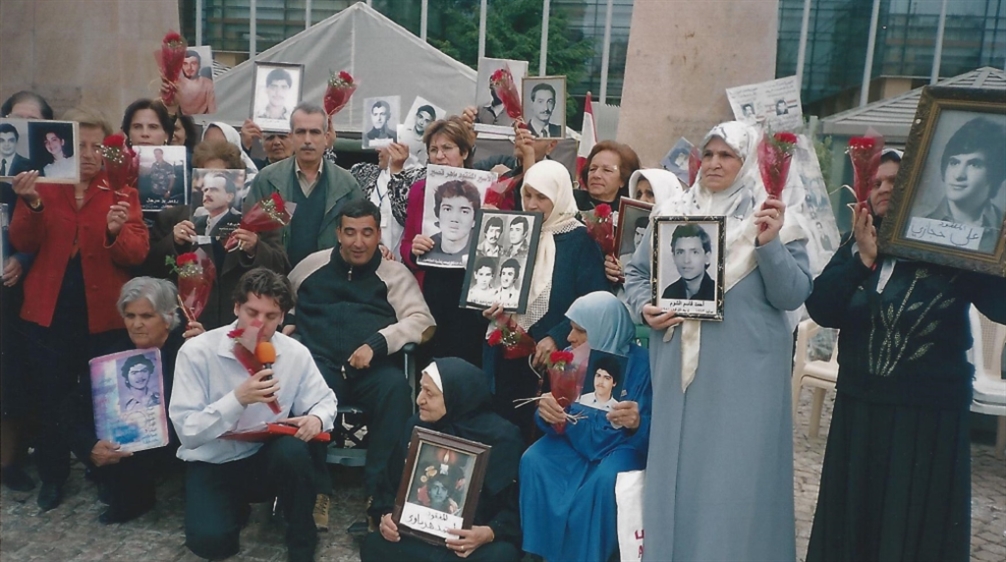The new encyclopedia was included by the Center in the context of “preserving the vivid memory of the uniqueness of such terrible violations and developing legal and social laws that criminalize enforced disappearances, hold perpetrators accountable, rewards victims, provides compensation, and returns them to the individual. and collective attention.” stated in the introduction to the book. According to the author of the encyclopedia and the founder of the center, Muhammad Safa, it is a call to open a case on forced disappearances in Lebanon, Palestine and Arab countries.
The Encyclopedia is not a complete documentation of the various events organized over the years in the context of this case, but rather includes documentation and a summary of the historical experiences of victims of enforced disappearances in Lebanon from in 1982. The encyclopedia consists of seven chapters taken from the work of the Khiam Center and the “Committee for Follow-up Action in Support of the Problem of Lebanese Prisoners”. their struggle to discover the truth. The second chapter is the Missing Persons Law and the National Commission to Uncover Their Fate, in addition to a special chapter dedicated to the anniversary of April 13, 1975, or the start of the Lebanese Civil War, and annual activities organized in June 26 (International Day in Support of the Victims of torture) and 30 August (International Day against Enforced Disappearances).
The book also stops at the first missing persons document released by the Khiam Committee in a press conference held on 12 July 1995 at the Lebanese Press Syndicate, which was followed by hundreds of events in Lebanon and abroad. The Khiam Center was one of the first to initiate providing medical, psychological and social support to the families of the missing in the tent in front of ESCWA and its headquarters in Corniche al-Mazraa, as well as the “Lebanese Prisoners’ House” in in the south, as well as a campaign of solidarity with prisoners and missing persons in the prisons of the Israeli occupation, during the civil war, or in Syria and Iraq, Libya and Azaz.
Safa recounted her experience in dealing with missing persons: “Fighting, searching and investigating victims of enforced disappearance has not been easy, like looking for ghosts or a needle in a haystack.
They still keep their clothes, toothbrushes and even their passports.
A lost sister or mother comes to you, standing in front of him, confused and helpless: his name is “Ahmed”, who was kidnapped on his way to work, and he gives you a name and a phone number to call . . . Or when we’re at a sit-in in front of the By the International Committee of the Red Cross, the father of one of the missing people comes up and gives me a piece of paper with his son’s name and date of birth, I take a picture of him , and sometimes I get a phone call from a brother or sister and a relative. Many of them died without knowing the fate of their loved ones. They still keep their clothes, their laughter, their cough, even their toothbrush and passport, and clean their clothes every now and then, and clean their rooms every morning, and while eating, a plate, spoon, and empty chair ” burgundy”. and Mohammed. Among them was Umm Aziz, who lost four of her children in the 1982 Sabra and Shatila massacres. He told me, “Sometimes at night I wait for someone to knock on the door and they come back.” One of the fathers, despite burying his martyred son, once went to the Press Syndicate to ask the released prisoners about his son.
The foreword to the book, signed by the center’s founder Muhammad Safa, pays tribute to Ghazi Aad, former president of the Association of the Families of Lebanese Prisoners in Syrian Prisons and head of the Committee for the Families of Missing Persons in Lebanon. , Vedad Halavani, Moroccan trade unionist Hussein Al Manoozi and the late lawyer Sinan Braj.
Source: Al-Akhbar
